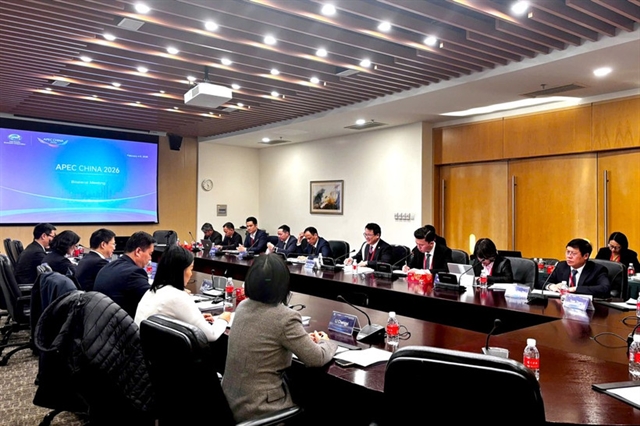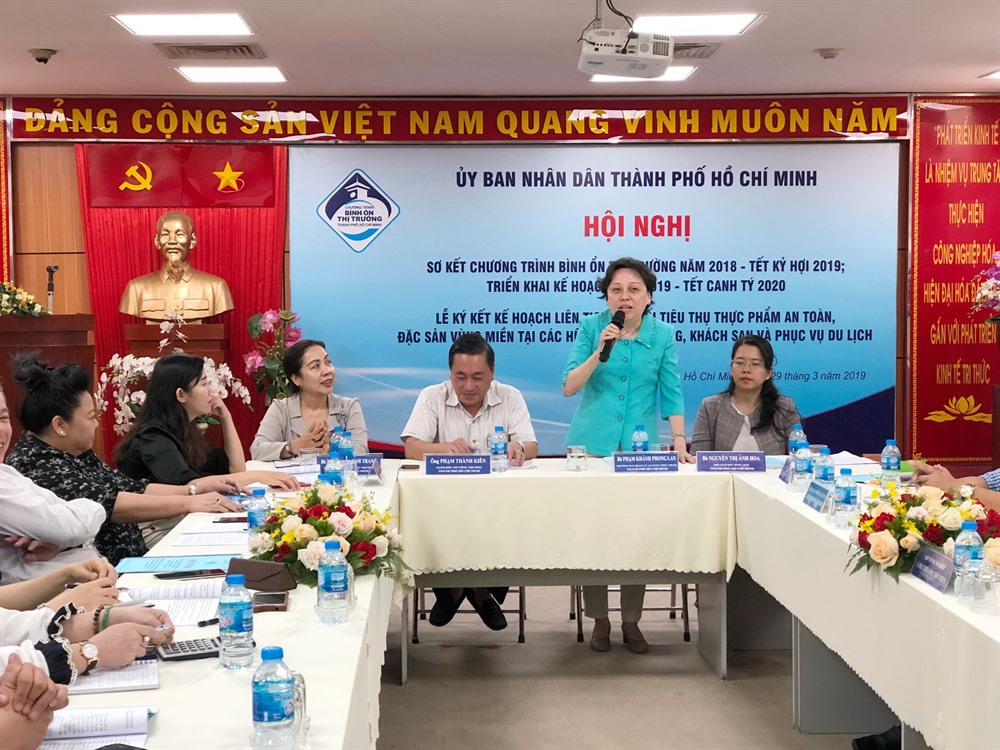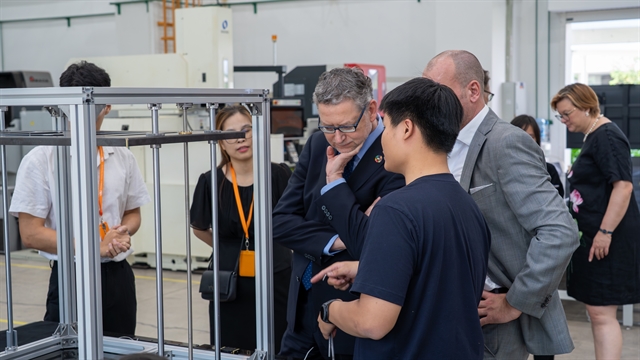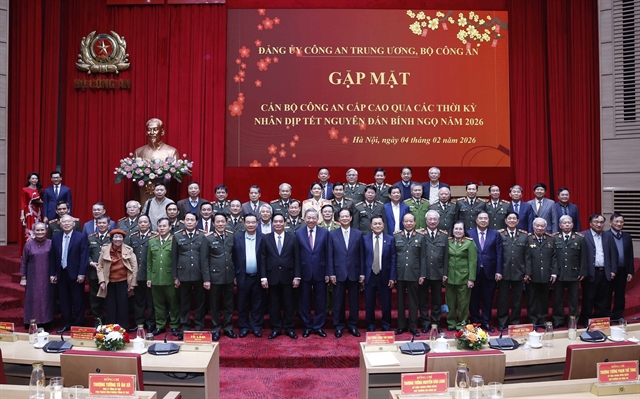 Economy
Economy

The HCM City Department of Industry and Trade, the Food Safety Management Board and the Department of Tourism will join hands to promote consumption of safe food and regional specialties at restaurants, hotels and tourism sites in the city.
 |
| Delegates at a meeting to review the price stabilisation programme in 2018 and during the 2019 Lunar New Year and set tasks for this year and the 2020 Lunar New Year. — VNS Photo |
HCM CITY — The HCM City Department of Industry and Trade, the Food Safety Management Board and the Department of Tourism will join hands to promote consumption of safe food and regional specialties at restaurants, hotels and tourism sites in the city.
Under a programme they unveiled on March 29, they will create a list of agricultural products and regional specialties that meet food safety standards and are produced and processed in a closed, modern chain.
They will survey demand for foods at restaurant and hotels and other criteria and requirements for choosing the items.
Phạm Khánh Phong Lan, head of the Food Safety Management Board, said the board would provide information about safe food and regional specialties to city hotels and restaurants and organise a meeting to connect them with producers of these products.
Nguyễn Thị Ánh Hoa, deputy director of the Department of Tourism, said the city has more than 3,000 tourist accommodations, including 124 hotels with three to five stars, 180 with two stars, and many tourism sites.
“Restaurants rated two stars and above and tourism sites have huge demand for safe foods, but to be accepted by them, products must ensure food safety standards and traceability but also have competitive prices,” she said.
Producers of processed goods must focus on design and packaging, she added.
Phạm Thành Kiên, director of the Department of Industry and Trade, said the programme was among the new features of the city’s price stabilisation programme.
“Through the programme, we want to promote consumption of food products under the programme that meet VietGap and GlobalGap standards at restaurants and hotels.”
The department was discussing with MM Mega Market to introduce Vietnamese products, especially those in the city’s price stabilisation programme, at a fair to be held in Thailand this year, he said.
Nguyễn Quỳnh Trang, deputy director of the Department of Industry and Trade, said the city was simultaneously implementing four programmes to stabilise the prices of essential foods and foodstuffs, school supplies, dairy products, and medicines for a year starting on April 1.
For instance, under the programme for essential foods and foodstuffs, 10 goods — rice, sugar, cooking oil, poultry and cattle meat, poultry eggs, processed foods, fruits and vegetables, seafood, and spices – are sold at fixed prices.
They will meet 25-30 per cent of demand, rising to 30-40 per cent during Tết.
In the school supplies programme, 122 items, 19 more than last year, are covered and will meet 35-50 per cent of demand.
The two remaining programmes keep fixed the prices of formula milk for babies and pregnant women, milk powder and liquid milk fortified with micronutrients and 21 classes of medicines with 634 items.
All the products will be sold at 5-15 per cent below market prices.
Trang said the programme this year has the participation of 79 companies, with C.P Vietnam (animal meat, poultry eggs), Bình Minh (poultry meat), Anh Hoàng Thy (animal meat) and Vinamit (vegetables) joining for the first time.
Twelve banks have signed up for the programmes and would lend VNĐ19.65 trillion (US$847.1 million) to the participating companies at interest rates of 5.5-7 per cent for short-term loans and 9-10 per cent for medium- and long-term loans, Trang said.
Sales under the fixed-prices programme increased by 9.8 per cent last year to VNĐ30.65 trillion, she said.
There were 10,983 outlets selling the goods last year. — VNS




